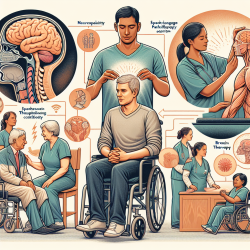Introduction
As a practitioner in the field of online therapy services, you might wonder how the latest research in genetics and agriculture can enhance your skills and understanding of human behavior. A fascinating study titled Relationship between rice farming and polygenic scores potentially linked to agriculture in China offers insights into how rice farming has influenced human genetics and behavior over centuries. This blog aims to help you implement the outcomes of this research or encourage further exploration.
The Research Overview
The study explores how rice farming in China has not only shaped cultural practices but also potentially influenced genetic traits. By examining polygenic scores (PGS) related to various behavioral and physiological traits, researchers have identified significant associations between rice cultivation and certain genetic markers. These findings suggest that rice farming may have played a role in human evolution, particularly in regions where rice is a staple crop.
Key Findings and Their Implications
The study highlights several key findings:
- Genetic Selection: Rice farming may have exerted selective pressures on genes associated with earlier reproduction and alcohol intolerance.
- Behavioral Traits: Regions with a history of rice farming show genetic predispositions towards certain behaviors, such as lower risk tolerance and educational attainment.
- Environmental Influence: The study uses environmental suitability for rice cultivation as an instrumental variable, indicating that the environment plays a crucial role in genetic selection.
For practitioners, these findings offer a new perspective on the interplay between environment, culture, and genetics. Understanding these dynamics can enhance your ability to address behavioral issues in therapy by considering the broader genetic and cultural context of your clients.
Practical Applications
Here are some ways you can apply these insights to improve your practice:
- Personalized Therapy: Consider the genetic and cultural background of your clients when developing therapy plans. This can help tailor interventions that resonate more deeply with their inherent predispositions.
- Education and Awareness: Educate clients about the potential influence of their genetic background on behavior and lifestyle choices. This awareness can empower them to make informed decisions.
- Research and Collaboration: Engage in further research or collaborate with geneticists to explore the implications of genetic predispositions in therapeutic settings.
Encouraging Further Research
The study opens up numerous avenues for further research. Practitioners can explore how genetic predispositions influence therapy outcomes or investigate the role of environmental factors in shaping genetic traits. By delving deeper into these areas, you can contribute to a more nuanced understanding of human behavior and therapy effectiveness.
Conclusion
The relationship between rice farming and genetic adaptation in China offers valuable insights for practitioners in the field of online therapy. By understanding the genetic and cultural influences on behavior, you can enhance your practice and provide more personalized and effective therapy. To read the original research paper, please follow this link: Relationship between rice farming and polygenic scores potentially linked to agriculture in China.










